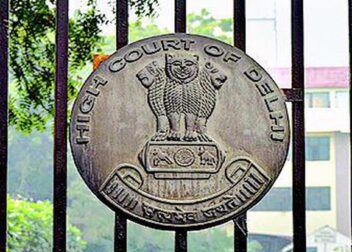Rule 36 of Bar Council of India Rules for Lawyers
Advertising has become a critical instrument for publicizing a firm or its products and services in the period of new and rising businesses, where the sector thrives on fierce rivalry. It is a marketing strategy that helps customers and the general public to become familiar with products on the market and to take advantage of various services. Professionals in practically every industry are devising novel marketing methods in order to expand their firms and advertise their services to the general public. However, advertising is severely prohibited in many professions in India. Lawyers and law firms are not permitted to engage in advertising activities to market their services in the legal profession.
Publications in the Legal Profession
Visiting cards, seminars, felicitation ceremonies, issuing circular letters, interviews, and personal communications are the most common forms of advertising in the legal profession. This is against the Bar Council of India’s (Bar Council of India) etiquette and professional conduct standards. The Bar Council of India is a statutory body that regulates legal practice in India and has disciplinary jurisdiction over the bar. The Bar Council of India has the authority to create rules that must be observed by all legal practitioners. Bar Council of India established Rule 36 in 2008, which prohibits an advocate from directly or indirectly advertising or soliciting his work through circulars, advertisements, interviews, touts, and personal correspondence.
Advocates are unable to provide inspiring newspaper comments or images in conjunction with their cases. They are also prohibited from using signboards, nameplates, or stationery to imply that they are the President or a member of Bar Council of India or any other Association. The concept of prohibiting advertising practices in the legal profession was inspired by UK law, where the legal profession is held in high regard and it is felt that commercialization would bring shame to the profession and lead to unfair practices.
In India, the legal profession is regarded as one of the most honorable and well-respected. Lawyers are required to be charitable and work for the cause of social upheaval, as well as assist in the delivery of justice to victims and provide pro gratis services to the destitute. Commercializing your business or services through advertising is considered unethical in the legal profession. It is claimed that if advertising is not outlawed, lawyers and law firms will be more concerned with establishing a brand and retaining a clientele than with providing efficient legal services.
Advertisements can be deceptive and can lead to unhealthy competition, and their expenditure can lead to unjustified fee increases and a decline in the quality of legal services. It is considered unethical and unprofessional. The bulk of India’s population is illiterate, making them vulnerable to deceptive advertising.
The discrepancy in the legal fraternity is another important reason why lawyers and law firms are not allowed to advertise in India. Large law companies have sufficient means and funds to advertise their firms, whereas mid-tier and small law firms lack such resources and funds. Unfair trade practices and unhealthy competition result as a result of this. Big law firms are able to take advantage of smaller firms as well as the people who are drawn in by such marketing.
Landmark Judgments on Advertising
In several situations, the judiciary has defended the legal profession’s grandeur and dignity, noting that it is not a trade and that commercialization of the profession is banned. Advertisements cause attorneys to zealously establish and set standards for themselves, which undermines the respect, dignity, and status of the noble profession, according to the Madras High Court in 1967. As a result, it’s reprehensible.
Furthermore, it is thought that the primary goal of a lawyer and legal companies should be public service; nevertheless, deceptive ads may lead to public exploitation, contradicting the purpose. The Supreme Court declared in N. Sharma, Advocate v. the State of Haryana that the legal profession is a noble profession, not a commercial or a business, and that advocates, as officials of the court, should seek to secure justice for their clients within legally permitted limitations. The court decided In Re: (Thirteen) Advocates vs Unknown on 3 September, 1934 that if a writer writes pieces in a newspaper and portrays himself as an advocate practicing in courts, he is essentially promoting his services.
On this subject, there are opposing viewpoints. Some argue that law companies should be permitted to advertise in India since it is a commercial activity, while others argue that it is a critical component of public policy that should not be regarded or advertised in the same way as any other trade or business.
Lawyers or legal firms can display information such as their name, contact information, the name of the State Bar Council to which they belong, qualifications, and areas of specialization under Rule 36 of the Bar Council of India, which was revised in 2008.
It is necessary to state that the above-mentioned material on the website is correct. Any advertising that goes beyond this is in violation of Rule 36. Bar Council of India, on the other hand, is unable to maintain a close eye on every lawyer and law business. Lawyers, on the other hand, continue to promote their services by giving interviews, distributing booklets, and erecting hoardings. Along with the cases, newspapers also publish the names of lawyers. Lawyers must always remember that their primary job is to give legal assistance to the general people, not to profit from the legal profession.




